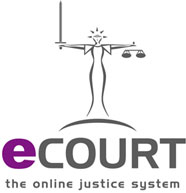| |
|
|
|
|
|
Useful Tips To Submitting Your Case Notes
- Both parties should prepare their respective Case Notes as efficiently and concisely as they can, as the less text there is the cheaper it will be. Always try to rank, in order of importance, the issues that are of most concern.
- Both sides should state, in their separate Case Notes, what they perceive to be the problem; how they want to see the dispute settled; what they want to achieve out of it; and what concessions they are prepared to make in order to achieve this.
- You do not have to show the other party these details and everything is treated in the strictest confidence.
- If using the Premium Package, you can choose how many Assessors you want working on your case, but bear in mind that the less you have the cheaper it is, but the more you have the more balanced the outcome may be. Otherwise eCourt will automatically appoint an Assessor for you.
- Make a note of how many words each individual Case Note is, and add the totals together to give you a rough idea of the cost of the case using our Costing Table.
- One of the most successful ways of resolving disputes quickly is to detach yourself emotionally from the outcome. This is not easy to do, but the simplest way is to appoint a Third Party Representative to act as a middleman who can advise you as to whether they think the solutions being offered are just and fair. This works particularly well for Mediation, but is a useful aid in Arbitration as well. The best Third Party Representatives to liaise through are usually someone like a parent, a trusted friend or relative, who you are prepared to hand over the negotiations to. These Third Party Representatives must be fair minded and not have any personal involvement in the case, or be subject to any financial gain or loss from the outcome. Their main objective is to protect you and make sure that you achieve a fair resolution to the problem. For this to work well, independent Third Party Representatives must be appointed by both sides.
- Don’t forget that if you want to use a Third Party Representative, the simplest way to do it is to get each of the Third Party Representatives to actually make the submissions to eCourt for you. If in doubt as to what to do, just email your enquiry to us at info@ecourt.co.uk .
- For best results, both parties should agree to adhere to the decision of the eCourt before the Assessment. Although Single Client Applications can be useful when trying to resolve disputes, see Single Client Applications.
- You do not have to show the other party your Case Notes and everything you want to be treated in confidence will be. But bear in mind that it is often very helpful if the two disputing parties do show each other, or their Third Party Representatives, their Case Notes before submitting them to eCourt. This not only reduces repetition and therefore costs, but also leads to less inflammatory language, especially where a third party, like children, will be affected by the outcome.
- To assist the Assessors always back up any statement with as much supporting evidence as you can, include documents, photographs, diagrams or any witness statements that are relevant.
- List all the legal points that are relevent to the case.
- Write a list of any financial liabilities that may be owed or incurred.
- Highlight any emotional issues that you think may be affecting the outcome, both from your point of view and from the other party. Is there a degree of revenge, closure, vindication, need for an apology, an expression of regret, anger, unresolved personal issues, or unspoken grievances that may be hindering the process or even be the main thrust behind the whole dispute? The more you can acknowledge to yourself at this stage, the quicker it is to get to the real issues which makes finding a resolution so much easier.
- To assist our Assessors try to highlight where the main areas of conflict are.
- You don't need to submit this to eCourt, but you might also find it useful to make a list of all the effects of not settling the dispute, like the amount of time taken, the stress involved, the money lost, the emotional toll, etc, and then list the gains from settling the dispute once and for all.
- If you can, put in several possible ways that you think would be a fair way to settle dispute. List any concessions that you or the other party are prepared to make in order to reach such an agreement. Try not to focus too much on what you are not prepared to give, as this is likely to create an immediate stumbling block. Remember, these proposals are all in the strictest of confidence between you and the Assessors.
|
|
|
|
